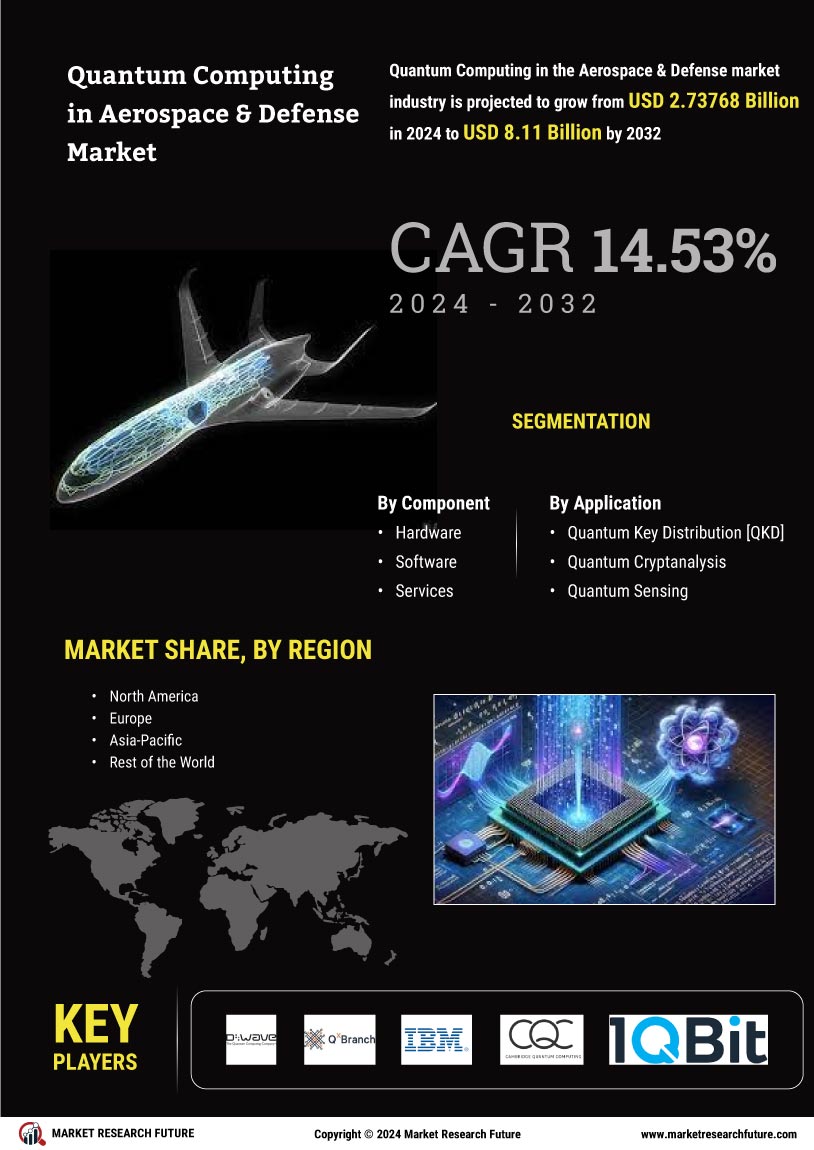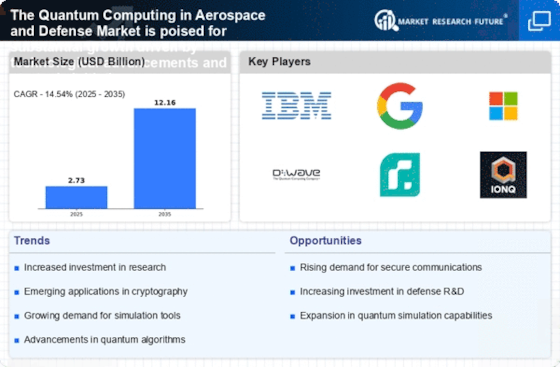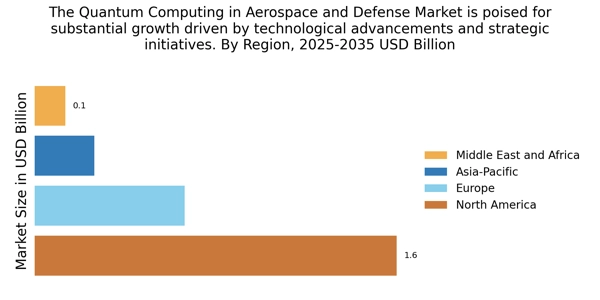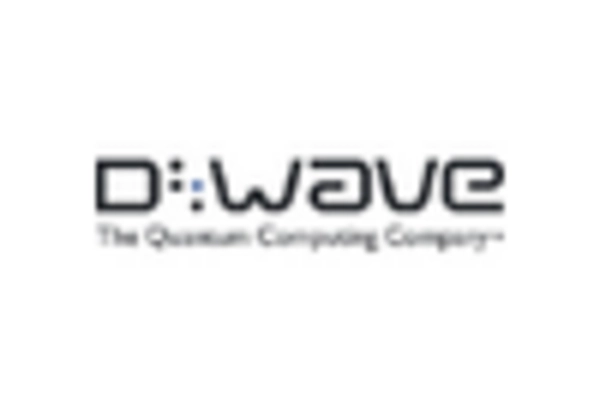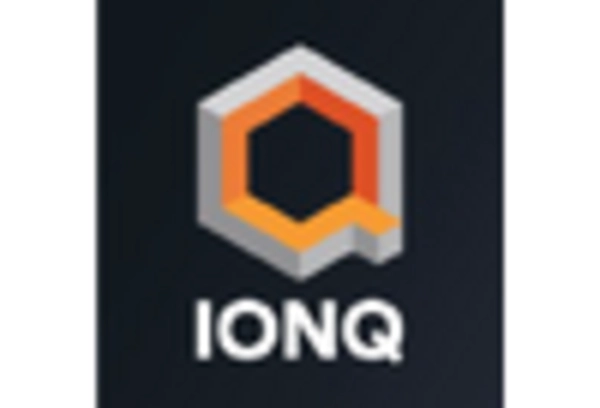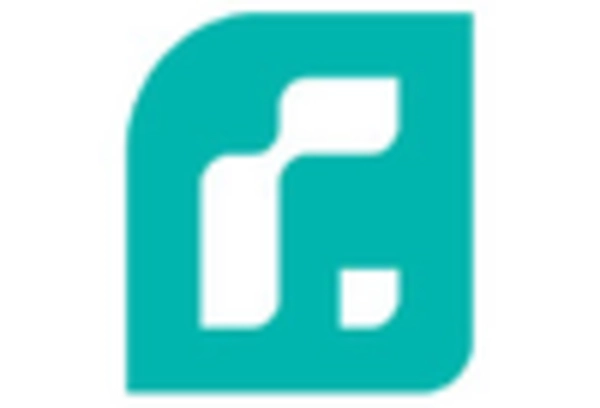Quantum Computing in Aerospace and Defense Market
Research Objectives
Market Research Future (MRFR) has formulated this report to provide an in-depth analysis of Quantum Computing in the Aerospace and Defense Market and to provide a detailed understanding of the various aspects of the market. The research objectives of this report are as follows:
- To determine the size of the global Quantum Computing in Aerospace and Defense Market in the year 2030.
- To identify the drives, restraining factors, and opportunities for global Quantum Computing in Aerospace and Defense Market.
- To analyze the competitive landscape.
- To identify the micro and macroeconomic factors that are likely to affect the growth of the global Quantum Computing in Aerospace and Defense Market.
- To provide strategic profiling of key market participants in the global Quantum Computing in Aerospace and Defense Market analyze their core competencies and identify competitive advantage.
- To identify the value chain, analyze the regional performance of quantum computing in aerospace and defense market, and analyze the market dynamics such as trends, drivers, restraints, opportunities, etc.
Research Methodology
MRFR has used a combination of primary and secondary research techniques to derive insights into Quantum Computing in Aerospace and Defense Market. The primary data has been collected through interviews with industry experts, industry associations, and opinion leaders. The secondary data has been sourced from company websites, annual reports, and industry-specific journals. The data has been further validated through several analytical and statistical tests.
Secondary Research
The secondary research process involves the study of trade magazines, industry databases, company reports, websites, and other online search engines. The secondary research from these sources, in combination with other relevant materials, provides an estimate of the market size and revenue. The market size and revenue were further used for the confirmation of various secondary data such as the volume shipped, average selling price (ASP), and revenue generated from various product segments and geographic regions.
Primary Research
The primary research data was procured from industry experts and opinion leaders. The primary research process comprises several interviews of key opinion makers such as CEOs, CFOs, industry experts, and senior managers in the key market players.
Approaches Utilized in This Report
This report has used data-triangulation techniques that incorporate bottom-up and top-down approaches, factor analysis, and time-series analysis. The bottom-up approach is used to estimate the market size by studying the size of individual segments and summing them up to arrive at the overall market size. Similarly, the top-down approach is used to validate the findings from the bottom-up approach.
The report also uses the demand-side and supply-side data triangulation to further validate the findings from the previous approaches. The factor analysis studies the systemic correlations between the key numbers derived from the analysis process and then uses those numbers for forecasting in the estimated period. Similarly, the time-series analysis studies the historical market numbers to predict future outcomes.
Analysis of Competitive Dynamics
In this report, we have included a section of the competitive landscape that includes Porter's Five Forces Analysis, a SWOT analysis of the key players, the competitive strategies of the key market players, and the market share of the top five market players. Porter's Five Forces Analysis provides an in-depth study of the market dynamics and how they affect the pricing and volume strategies of the key players in the market. The SWOT analysis of the key players helps understand the competitive strengths, weaknesses, opportunities, and threats faced by the key market players. The market share of the top five players helps us understand the competitive landscape of the market.
Advantages of the Report
- The report provides insights into the current and future trends that are likely to affect the growth of the market.
- The report provides an in-depth study of the market dynamics that are likely to affect the growth of the market.
- The report provides insights into the competitive landscape of Quantum Computing in Aerospace and Defense Market.
- The report provides insights into the factors that are likely to drive the growth of the market and the factors that are likely to restrain the growth of the market.
- The report provides the market size and revenue forecasts of the market for the estimated period from 2023 to 2030.
